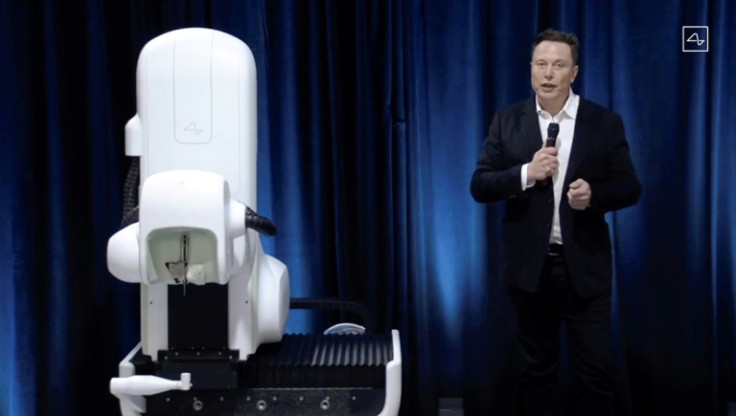Musk's Neuralink Inches Closer To Brain Implant Clinical Trials Following £480.44m Funding Round

Almost a year after it welcomed its first patient for trial, Elon Musk's neurotechnology company Neuralink has recently closed a new funding round–amounting to US$650 million (£480.44 million) in their latest series E funding round. This funding round–the ninth the company has finished since its founding in 2016–aims to bring Neuralink closer to larger clinical trials–changing ways people who are paralysed to be able to have some form of autonomy in controlling electronic devices for everyday use.
What the Series E Funding Covers
The funds will support the expansion of clinical trials across the US, Canada, and the UAE, focusing on applications like vision and speech restoration. Neuralink's flagship device, Telepathy, has been implanted in five individuals with severe paralysis, enabling them to control digital devices using their thoughts.
Additionally, the company has received FDA Breakthrough Device Designation for its Blindsight vision restoration system and a speech restoration device.
For this latest funding round, prominent investors such as ARK Invest, Sequoia Capital, Thrive Capital, Founders Fund, and DFJ Growth pitched in.
'This funding will accelerate our efforts to expand patient access and innovate future devices that deepen the connection between biological and artificial intelligence', the company said in a press statement.
An Overview of Neuralink's Patients
Neuralink has implanted its brain-computer interface, Telepathy, in five individuals with severe paralysis, enabling them to control digital devices using their thoughts. The first recipient, Noland Arbaugh, who has had quadriplegia since a 2016 diving accident, received the implant in January 2024. Despite initial issues with electrode retraction, software updates restored functionality, allowing him to browse the web and play games like chess using only his mind.
The second participant, Alex, had the device implanted in August 2024. He quickly achieved high-performance control, playing complex video games and creating 3D designs with CAD software.
A third patient was implanted by early 2025, and all three were reported to be progressing well. Details on the remaining two participants have not been publicly disclosed. These developments mark significant strides in Neuralink's mission to restore autonomy to individuals with severe neurological conditions.
A Look Back on Neuralink's Mission
Neuralink, founded by Elon Musk in 2016, aims to develop brain-computer interfaces (BCIs) that merge human cognition with artificial intelligence. The company aims to empower individuals with neurological disorders by enabling them to control digital devices through thought.
Musk envisions a future where BCIs restore lost functions and enhance human capabilities. He has stated, 'Imagine if Stephen Hawking could communicate faster than a speed typist or auctioneer. That is the goal.'
Musk believes integrating with AI is essential for humanity's future, asserting, 'If you can't beat 'em, join 'em.' Neuralink's long-term vision includes treating neurological conditions, augmenting human cognition, and ensuring humans remain relevant in an AI-driven world.
Discussions on Ethics of BCIs
Neuralink's advancements in BCI technology have sparked significant ethical debates. One primary concern is data privacy and ownership. The neural data collected by these devices could reveal intimate details about an individual's thoughts and emotions. Questions arise regarding who owns this data and how it might be used or shared, potentially leading to unauthorised access or misuse.
Informed consent is another critical issue. Ensuring that participants fully understand the risks and implications of implanting such devices is challenging, especially given the technology's novelty and potential long-term effects on cognition and personality.
Moreover, animal welfare during Neuralink's testing phases has come under scrutiny. Reports indicate that numerous animals, including monkeys, have died due to complications from implant procedures, raising concerns about the ethical treatment of test subjects.
Scaling Advancement
Despite concerns, the company is now positioned to accelerate clinical trials, expand its research footprint, and advance human-computer integration. With a valuation nearing $9 billion (£6.66 billion) and backing from major investors, the funding signals growing confidence in Neuralink's ability to move from experimental implants to scalable medical solutions that could redefine treatment for paralysis, vision loss, and other neurological conditions.
As the company pushes the boundaries of neuroscience and AI, this round reinforces its potential to reshape healthcare and how humans interact with technology—raising profound possibilities and responsibilities for the future.
© Copyright IBTimes 2025. All rights reserved.





















